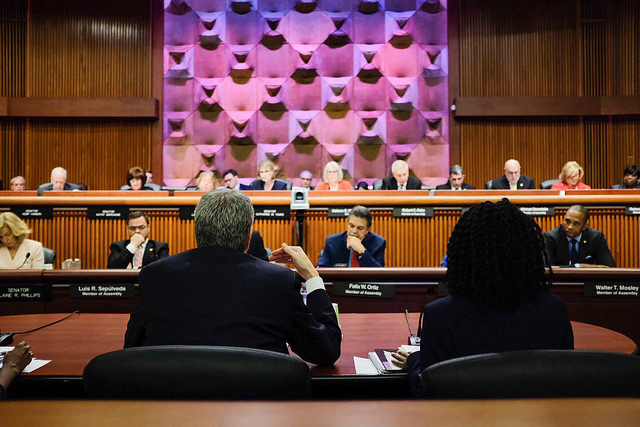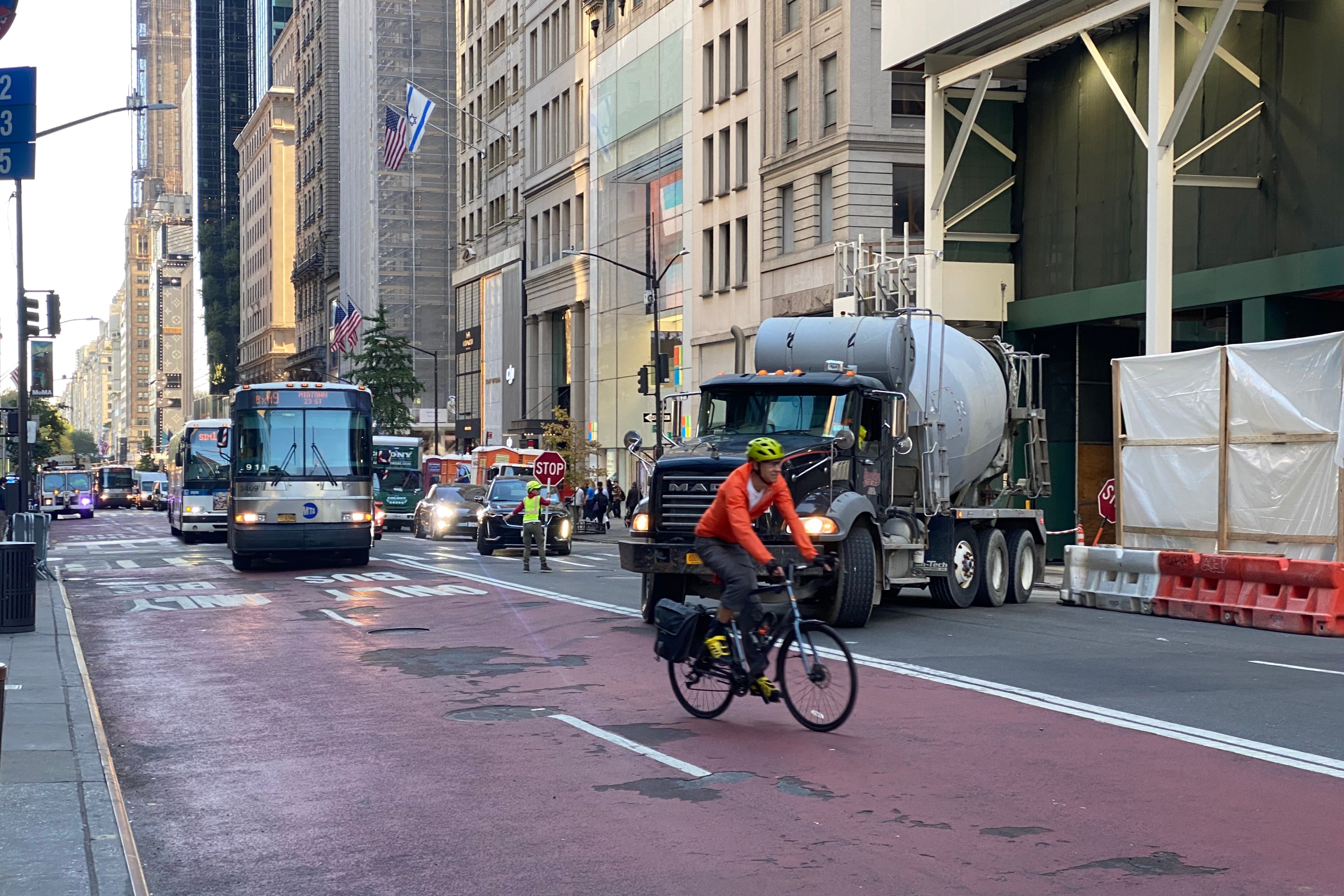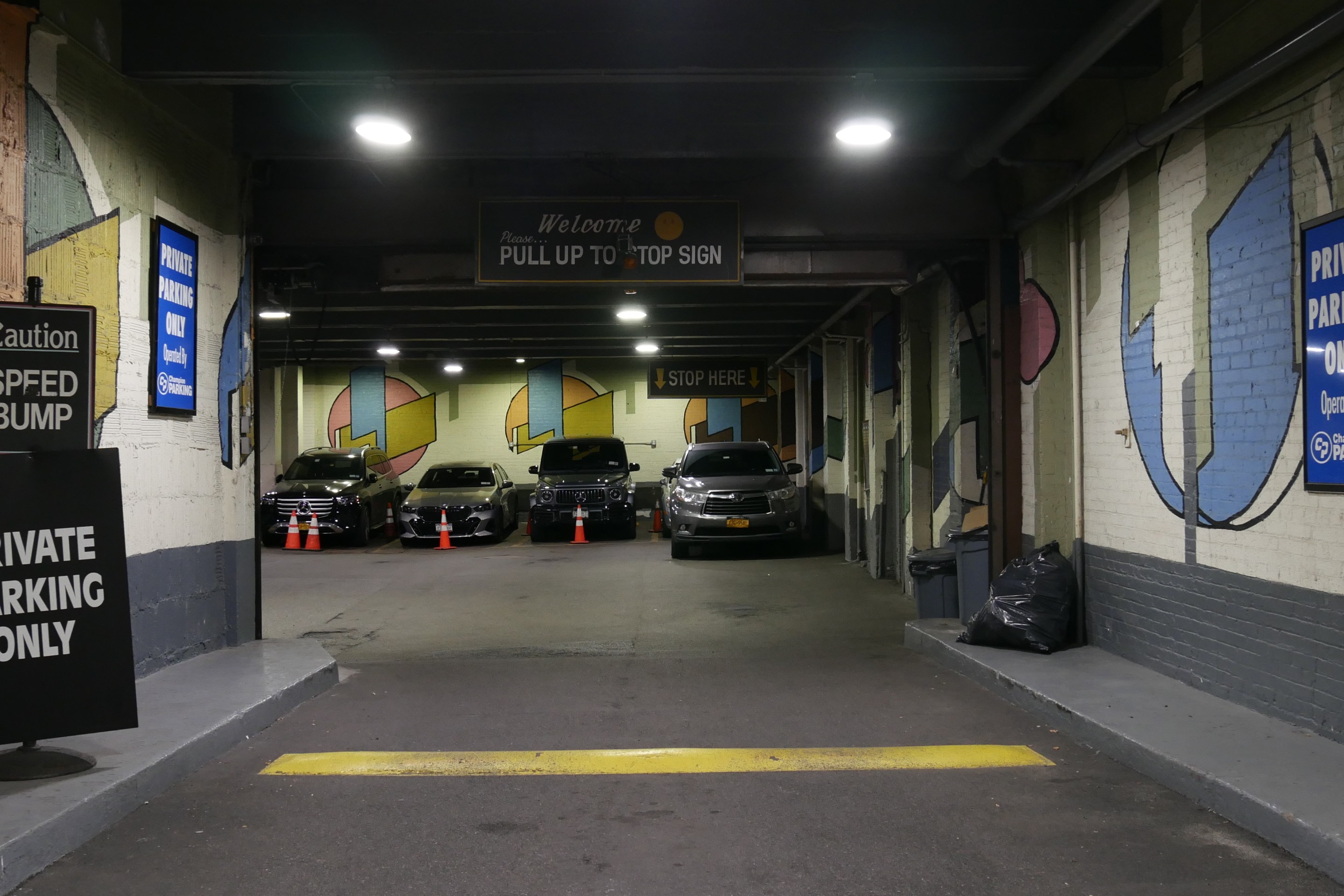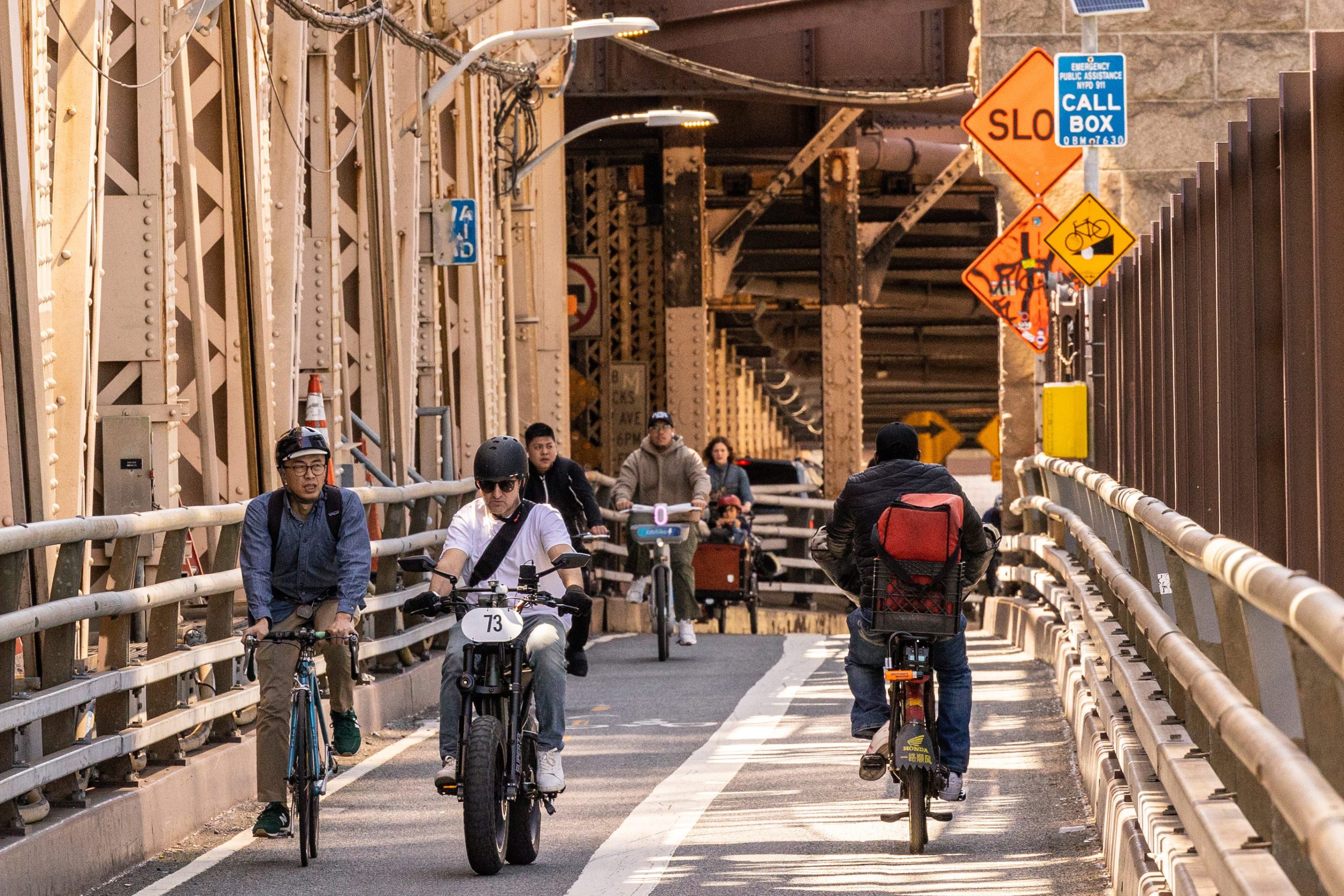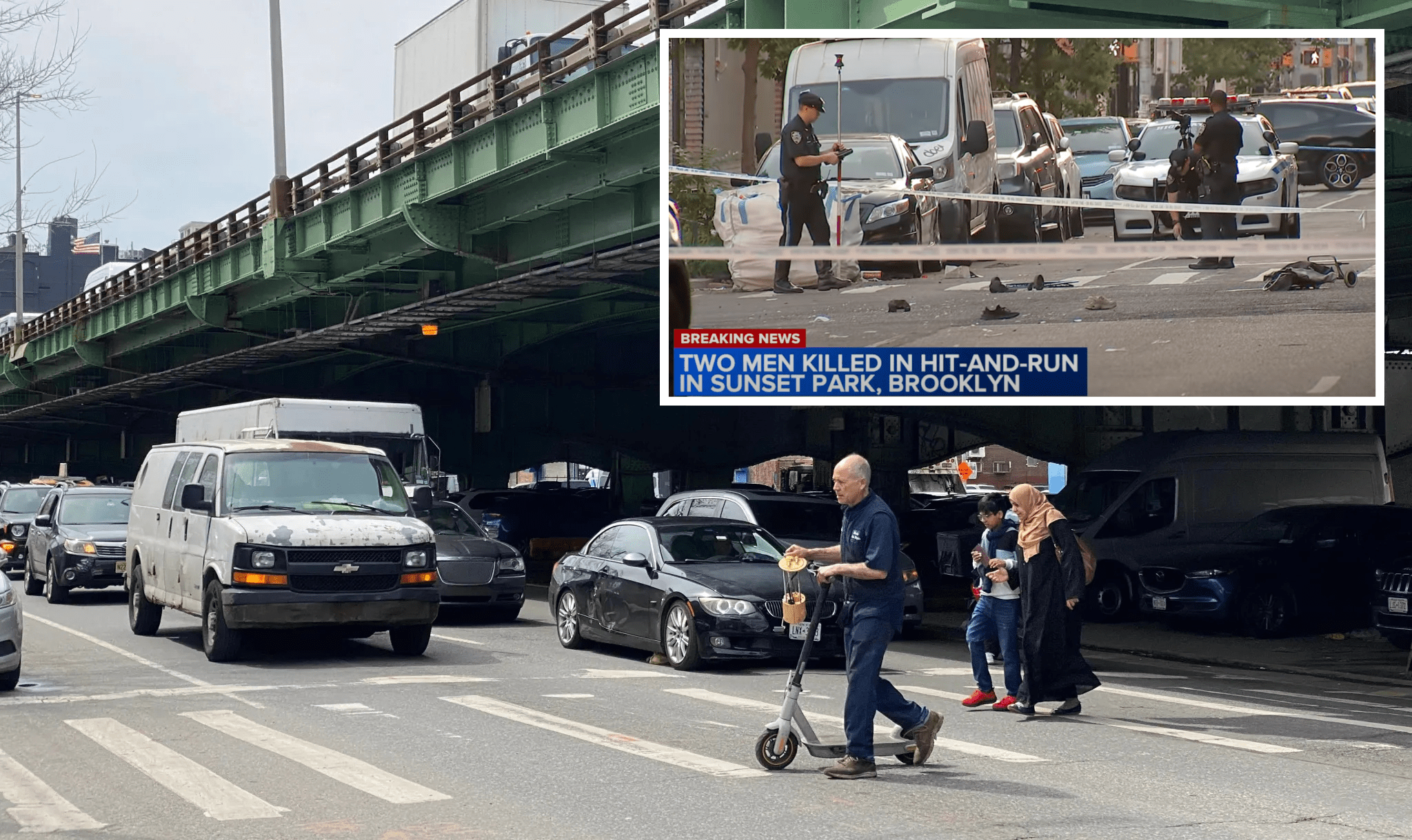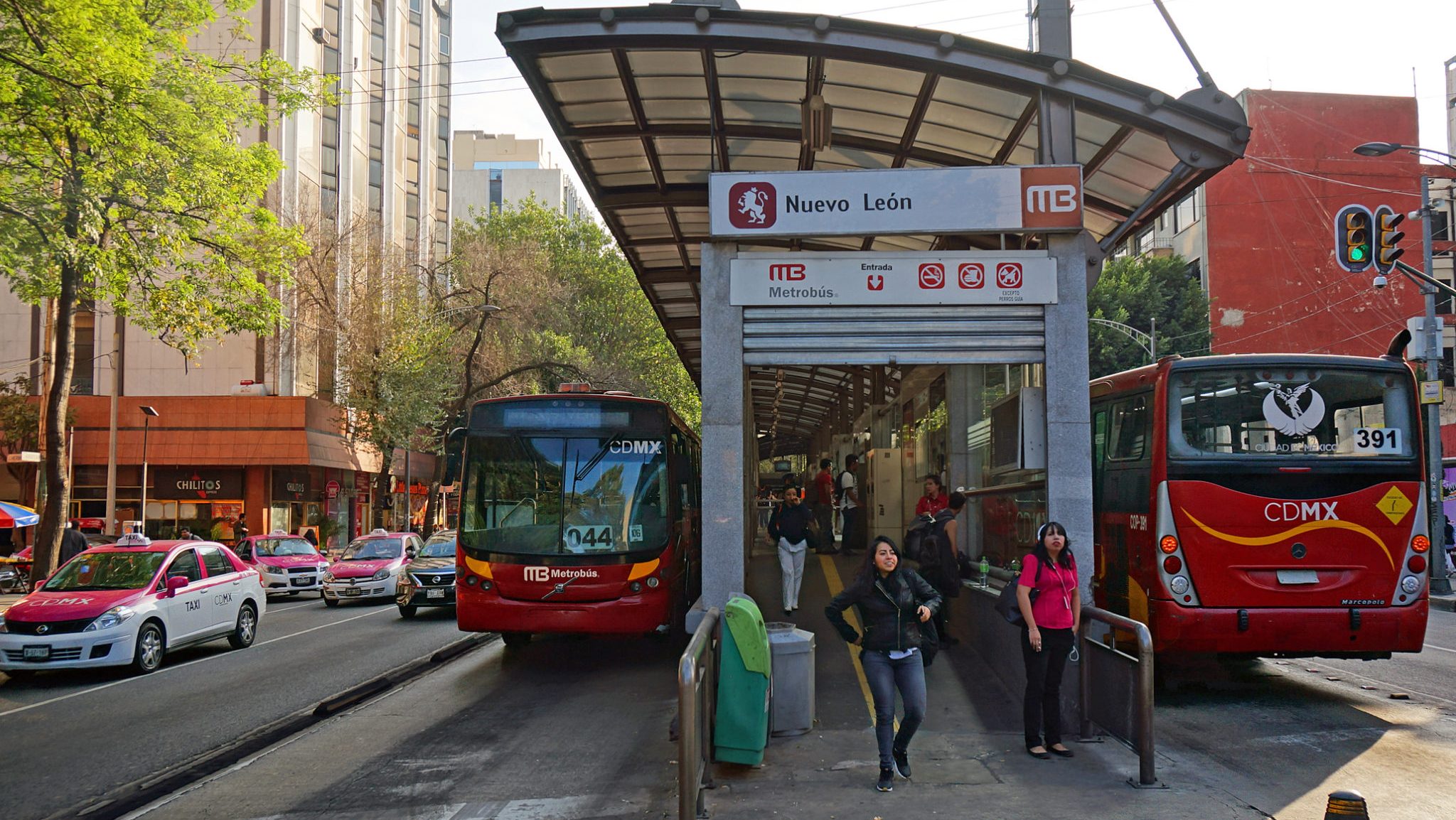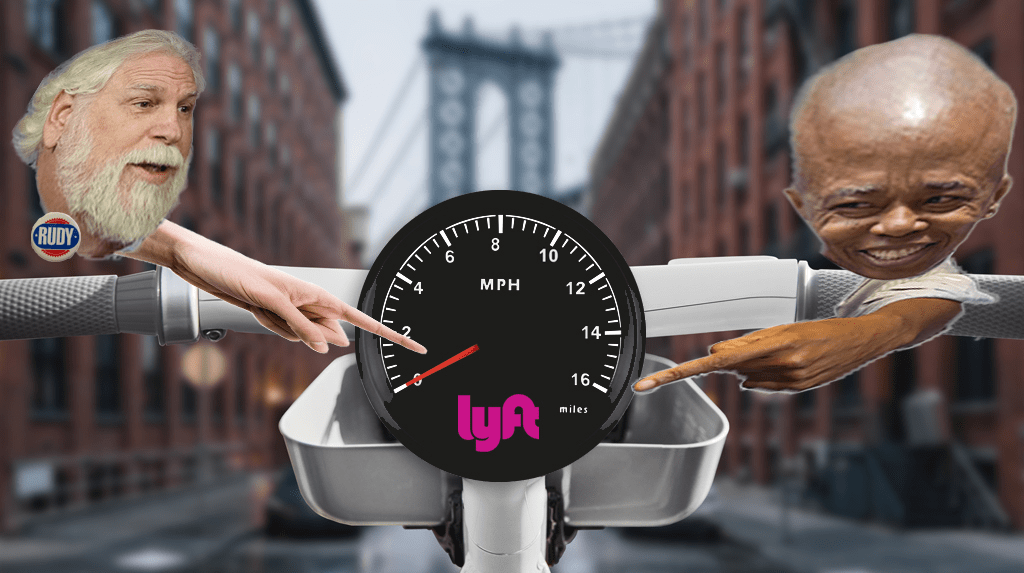Bill de Blasio spent the summer and fall knocking congestion pricing, but since the release of road pricing recommendations by Governor Cuomo's Fix NYC panel [PDF], the mayor has softened his stance.
De Blasio first showed signs of opening up to congestion pricing last month, when he called the Fix NYC proposal an "improvement over previous plans."
Testifying in Albany yesterday, de Blasio refrained from calling it a "regressive tax," a go-to attack that he leveled against congestion pricing repeatedly (and erroneously) last year. Instead he told legislators that the Fix NYC version of congestion pricing is "fundamentally different, better" than the 2008 version under Mayor Bloomberg and the Move NY toll reform plan.
It's strange to hear that from the mayor, since the Fix NYC plan isn't all that different from those earlier plans, and it could do as much or more to reduce traffic on NYC streets. But whatever the reason, de Blasio sounded ready to negotiate, laying out conditions for his support:
If there were a congestion pricing plan there are several measures critical for New York City residents. One -- a requirement that all proceeds are invested in mass transit projects in the five boroughs only. And two -- the City of New York needs the ability to sign off on transit projects and priorities. Also, any pricing scheme for passenger vehicles should take the needs of New Yorkers with hardships into account including low income New Yorkers and those with disabilities.
For the most part these are reasonable conditions. Creating a mechanism to guarantee that congestion pricing revenues are devoted to projects that benefit New York City transit riders -- a.k.a. the "lockbox" -- should be doable. And de Blasio is in an excellent position to negotiate those guarantees, according to TransitCenter advocacy and communications director Jon Orcutt.
"It’s good that the mayor is starting to stake out, at least in general, positions on what the revenue should go for," Orcutt said. "That needs to get sharper in terms of specifics, and that can only be worked out and negotiated with the MTA and the governor. There’s no way around that."
To determine where the money should be invested, Orcutt said electeds need to listen to the officials at New York City Transit and NYC DOT who know the city's transit needs best.
There are several policy measures Orcutt mentioned that could benefit city residents before congestion pricing goes live, like buying more buses and expanding bus service, better fare integration for in-city commuter rail trips (along the lines of the "Freedom Ticket" pilot MTA Chair Joe Lhota has promised), and more bus lanes in the farther reaches of the boroughs, where congestion pricing won't do much to reduce traffic and speed up buses.
More troubling is de Blasio's impulse to carve out exemptions. Anti-poverty advocates have released research showing that the low-income beneficiaries of congestion pricing far outnumber the very small share of low-income New Yorkers who car commute into the Manhattan Central Business District. A targeted discount for low-income residents may not undermine congestion pricing (few trips would be affected), but adding exemptions on top of that could erode its impact.
That's what happened in London, where exemptions and discounts "diluted the scheme's effectiveness," according to road pricing researcher Lewis Lehe.
For New Yorkers with disabilities, inaccessible subway stations remain a huge problem. For residents who need regular access to hospitals and health care workers dealing with exceptionally long commutes, deteriorating transit service is a much bigger concern than cheap car access to Manhattan below 60th Street. Instead of seeking exemptions to a congestion fee, de Blasio could do a lot more for these New Yorkers by steering congestion pricing revenue toward transit investments that will help them.
That scenario doesn't feel as far-fetched as it did a few weeks ago. On congestion pricing, de Blasio seems ready to play ball.
